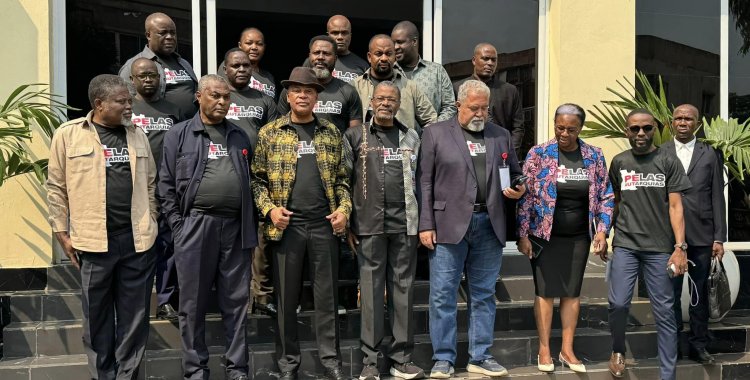According to the lawyer, any citizen or group of citizens can send petitions, complaints or presentations to State bodies, in light of article 73 of the Constitution, and that the impediments registered on Thursday translated into a political fact due to the nature of the actors.
"It is a demonstration with the aim of appealing to the sensitivity of power to look at issues that have been identified as being critical with some special attention, coming from politicians it is clear that this becomes a political fact, as it has effectively become", said Sebastião Vinte e Cinco, speaking to Lusa.
The leaders of the United Patriotic Front (FPU), an opposition bloc, who on Thursday distributed pamphlets about "the real country" to the main State institutions and the population were stopped by the intervention police, who prevented deputies from accessing Largo 1.º de Maio, in Luanda.
Previously, the leaders of the National Union for the Total Independence of Angola (UNITA), Democratic Bloc (BD) and political project PRA-JA Servir Angola, as well as Francisco Viana, a member of civil society, had already been prevented by the presidential guard from handing over his "communication about the real country", at the Supreme Court, close to the Presidential Palace.
This impediment of access by opposition politicians to a State institution (Supreme Court) and a public space (Largo 1.º de Maio), "due to the implications and the nature of the subjects involved" sent the issue to the political sphere, he stressed.
"With this stance, the opposition consolidates the idea that power is increasingly less sensitive and more intolerant and, as a result, the opposition's electorate perceives and receives this clear message that power is, after all, less sensitive to differences", he highlighted.
Sebastião Vinte e Cinco argued, on the other hand, that the institutions that blocked the opposition's access to the Supreme Court and the 1.º de Maio must present a clarification to the country and citizens about the reasons that led them to act in such a way.
"It is a constitutional right, of any citizen, to present petitions, complaints, presentations to the bodies of power, this is indubitable, because it follows from article 73 of the Constitution and, there, any of us, whether or not exercising a State function can take this approach to institutions", he said.
This legal expert and former candidate for leadership of the Angolan Bar Association also considered that the implementation of fundamental rights and freedoms in the country constitutes a "permanent and continuous challenge" for Angolan society.
"For 30 years the challenge has been this and in this aspect there have been advances and setbacks. In recent years, the assessments that have been made by independent bodies, non-governmental organizations and political parties are that things have gone backwards", he concluded.
"Communication about the real country" addresses the "subversion of the rule of law" in Angola, the regime's "deviant behavior", violations of freedoms, rights and guarantees, the "hijacking" of media and the economic crisis, among other aspects, demanding reforms in the country, he said.







